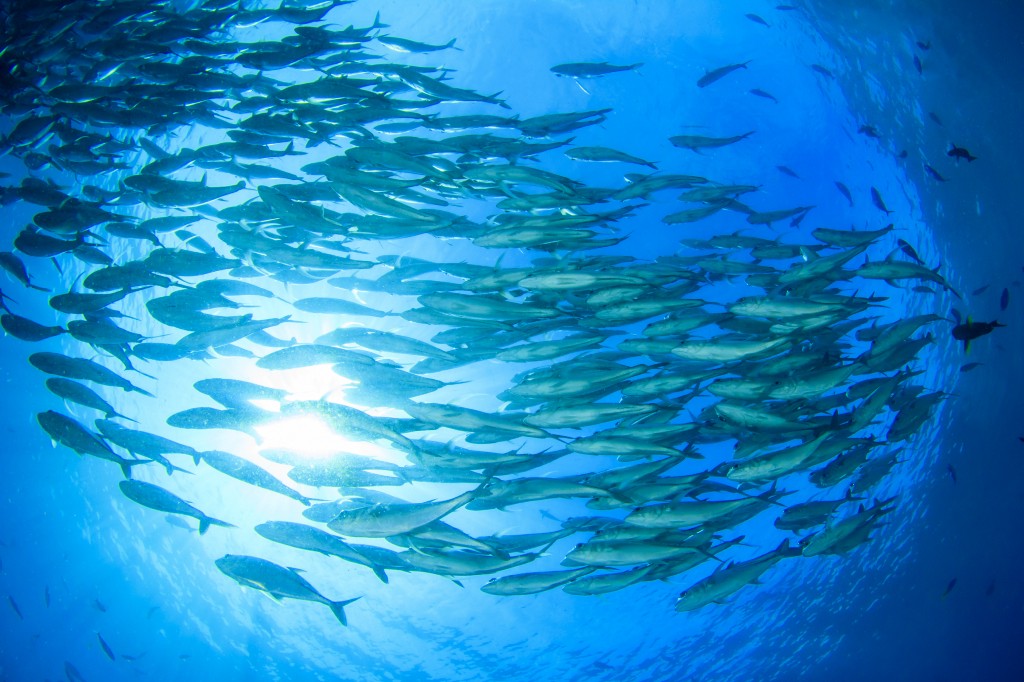Losses from poor fisheries management around the world results on foregone economic benefits of as much as $83 billion. Reversing those practices with sustainable use of ocean resources could generate hundred of billions for economic growth and improved livelihoods, particularly in developing countries.

One key to realizing the surplus: local community engagement in fisheries management and recovery.
“What we’re finding around the world is there are lots of interesting examples of cooperatives being formed around fisheries, where there are rights and interests being allocated to local communities,” said Michael Arbuckle, an independent director of FishServe Innovations, at the recent Sankalp Southeast Asia Summit in Jakarta.
In island nations like Indonesia and the Philippines, and around Southeast Asia more broadly, fisheries and agriculture are critically important for the livelihoods of coastal communities. Losses from poor variable harvests, unsustainable fishing practices, high fishing costs and reduced prices per unit of landed fish, lead to low savings rates for local fishing economies in these countries.
Pescador Holdings’ First Investment Offers a Blueprint for Sustainable Seafood
Social issues
Some states and local governments, which play a large role in managing fisheries and resources, are trying to get out of the way of private capital needed for sustainable solutions. “You need entrepreneurial action to do that,” Arbuckle.
The recently launched $20 million Meloy Fund is focused on demonstrating financial returns from supporting sustainable coastal fishery practices in Indonesia and the Philippines. Building informal networks and getting fisheries impact investors to work together, is key to find best practices and find ways of collaborating even though they might be competing for similar investments.
“Impact investing in sustainable fisheries is very new, and it presents an opportunity for us to shape the market in a meaningful way,” said Manuel Bueno Vera, a director of the fund. “There’s a relatively small pool of investors out there, and it won’t be that way forever.”
Meloy Fund raises $10 million for sustainable fisheries in Indonesia and Philippines
Impact investors seeking to develop sustainable seafood and sustainable coastal communities must realize that the state of the oceans is not only a key environmental issue but also a key social issue for millions of people who depend on coastal resources, Bueno Vera says.
That shared vision should drive meaningful, practical and self-contained collaborations, in order to develop trust between the different players — whether they are coastal communities who have been “screwed over again and again,” Bueno Vera says, and government and private sector actors.
Investable opportunities
Environmental, legal and social standards need to be developed for social impact investors in coastal communities, sustainable fisheries, wild-caught seafood, eco-tourism, coastal agriculture, and a multitude of areas where “blue economy” investments may eventually flow.
“We want to be very open about the lessons that we learn and the investments that we do,” Bueno Vera said. “It is very important to reveal those market tools to where other impact investors say, ‘You know what, I can do this as well.”
“For fisheries there is so much more than needs to be done [as far as realizing what is sustainable and what is social impact], that it starts with training the enterprises themselves,” Bueno Vera says. “There are very few investment ready companies out there.”
More than 40 sustainable seafood companies and investors will gather at Stanford University Nov. 7–8 for the innovation forum and final awards of this year’s Fish 2.0 business competition.











